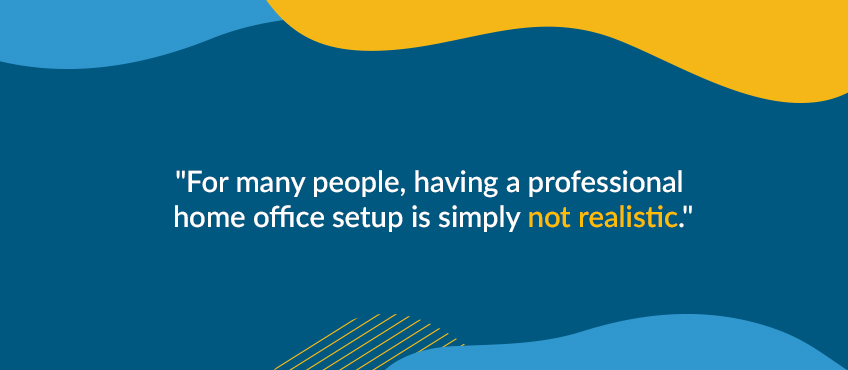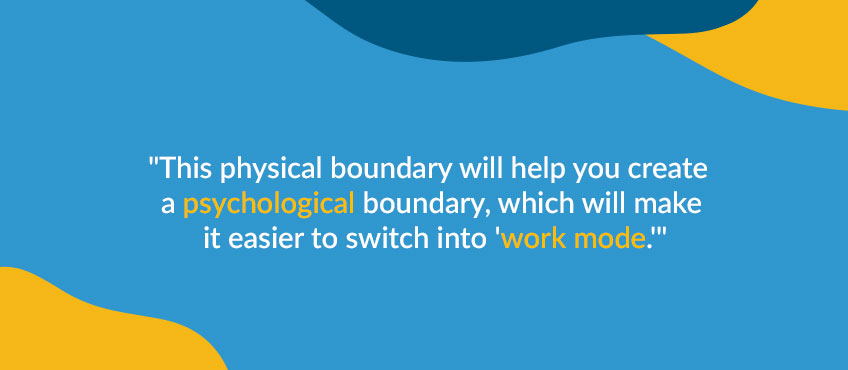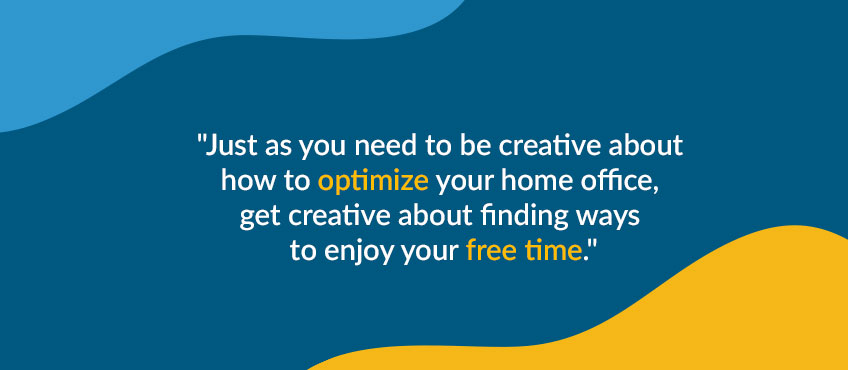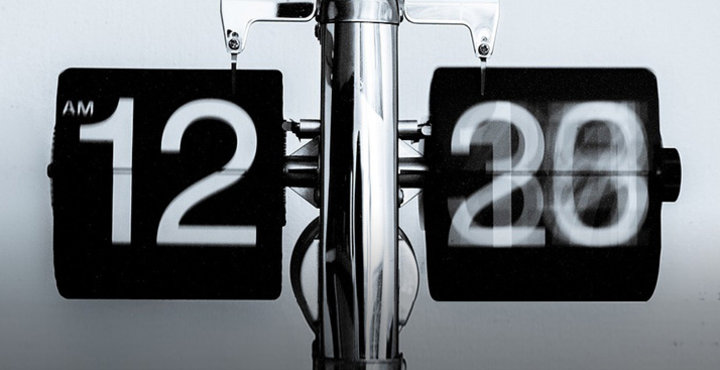Written by Marie Apaloo
A Writer's Office
Many famous writers, from Haruki Murakami to Margaret Atwood, habitually craft their work at home, as do many everyday folk, including graduate students and bloggers.
However, as the impact of COVID-19 continues, the concept of a "home office" is no longer just a personal preference. For many people, it is an obligation.
Over the past few weeks, virtually all writers—along with many other workers—have switched to working from home. Gone are the days of writing all night in the library or scheduling writing sessions with friends in a café. As we have scrambled to adjust, many of us have ended up working in less-than-ideal office conditions. With that in mind, it's important for all of us to do what we can to optimize our setup to support our productivity, health, and well-being.
To help support your writing and wellness as you settle into your home office, we've shared our top working from home tips with you. Read on to learn more.
5 Working From Home Tips for Writers
Tip 1: Ergonomics, ergonomics, ergonomics!
This one can't be stressed enough. It may seem acceptable to spend an eight- to ten-hour day hunched over your laptop on the sofa, but very soon your neck and back will inform you otherwise.

For many people, having a professional home office setup (a private room, a full-sized monitor, and a desk and office chair) is simply not realistic.
However, these simple adjustments will go a long way toward improving your comfort.
-
Use a stack of books (or a laptop stand) to bring your laptop up to your eye level. This will prevent you from dropping your head to look at your screen, which in turn will improve your posture and help prevent neck pain. However, for this tip to be truly effective, you will also need to consider our next tip . . .
-
Borrow or invest in a remote mouse and keyboard. Having these will allow you to navigate on the screen and type comfortably while your laptop is propped up.
The key thing to remember here is to do the best that you can with what you have. If you do have a full desktop set up, enjoy it! However, if you have no choice but to work at the kitchen table on your laptop, adjust what you can. And consider taking short, frequent breaks to let your body recover. All of which leads to our next point . . .
Tip 2: Take scheduled breaks
When it comes to working from home tips, this one is classic: establish a "home office" routine. Offices run on routines for a reason. They do wonders for your productivity. However, it's equally important that your routine includes scheduled breaks. Taking breaks and respecting your own break time is beneficial for your health, mindset, and productivity.
Besides, clarifying the boundaries between "at work" and "on break" will help you avoid the trap of perpetually doing both at the same time. Rather than attempting to write while scrolling through your newsfeed, doing your laundry, or Skyping your mom, commit to your scheduled working blocks and relish your breaks when you take them.
That said, as a writer you might need to make exceptions to this rule when you find your "flow."
When you're in a good writing flow, it may be useful to postpone or skip a break to take advantage of your enhanced creativity and energy. This will balance out those other times when you're suffering from writer's block or when your productivity slumps.
Tip 3: Define your physical workspace
Just as it helps to make time boundaries between home and work, it's also helpful to make a physical boundary. So find your workspace (even if it is just a tiny corner of your bedroom) and make a conscious decision to work there and only there.

This physical boundary will help you create a psychological boundary, which will make it easier to switch into "work mode." If it helps, spend some of your free time Googling home office decoration ideas and turn your work space into a place where you're excited to work.
Tip 4: Minimize distractions
It is no secret that there are a million things vying for our attention at any given moment.
Whether it's your email inbox, social media, online news sources, or a pinging cellphone, when you are trying to write, distractions are not your friends.
For many people, getting into "the zone" of writing can take anywhere from 10 minutes to an hour. Therefore, if you are repeatedly interrupted in your writing process, it can feel very difficult to get into that zone, let alone make any progress.
To overcome this challenge, here are a few home office ideas you might find helpful.
- The first thing to do is minimize the interruptions that you can control. Put your phone away and on silent during working blocks. If it's appropriate, ask your housemates or family to not disturb you during your productive working periods. Use applications like BlockSite or Cold Turkey to temporarily block your go-to vice websites.
- There are some things—like noise from the neighbors or your housemate's phone calls—that are harder to ignore. A good option here is to use headphones (or, even better, noise-canceling headphones) to block out background noise. If you find music distracting, you could opt for calm instrumental music or white noise. You could also leave the music off and simply use your headphones as earplugs.
Tip 5: Have fun!
When we work from home, we miss out on the main benefits of actually going to a shared office: community, banter, and fun. Finding a work–life balance is even more important when work and life all happen in the same house, apartment, or even bedroom.

So keep sharing funny GIFs and words of encouragement with your colleagues and friends. Check in with your co-workers or writing buddies to see how they are doing. Motivate yourself with daily or weekly mini-goals. And just as you need to be creative about how to optimize your home office, get creative about finding ways to enjoy your free time so you can come to work feeling refreshed and replenished.
Final Words
When you work from home, it's important to find ways to support your own success and well-being. Hopefully, these home office ideas will be helpful as you continue with your writing projects. And who knows? Maybe being stuck at home will be a blessing in disguise. You might be able to use it as a writing retreat or a chance to work on that paper, book, or poetry collection you have been putting off. So find what works for you in these changed circumstances and keep writing!
Image source: stokkete/envato.elements.com
Polish Your Voice with Professional Editing and Proofreading
Hire an Expert Academic Editor, or Get a Free Sample
About the Author

Marie is an in-house editor at Scribendi's Montreal office. During her MA in applied linguistics, she investigated how one's native language affects their second language, and she applies this understanding while editing texts written by non-native speakers of English. Outside of work, she enjoys radical sports and reading from her eclectic book collection in her hammock.









